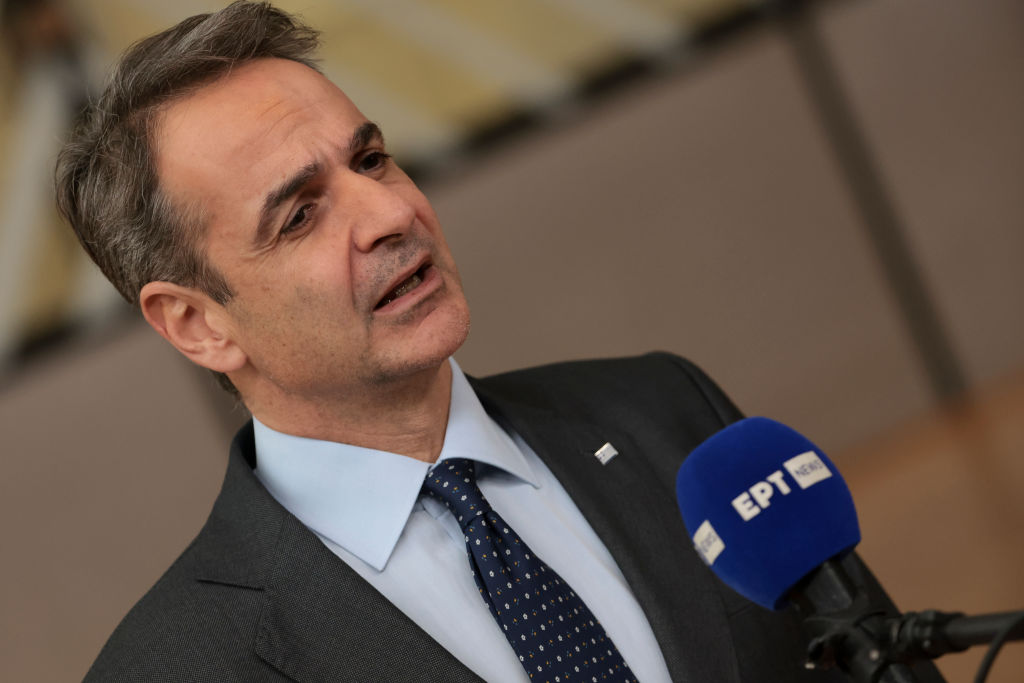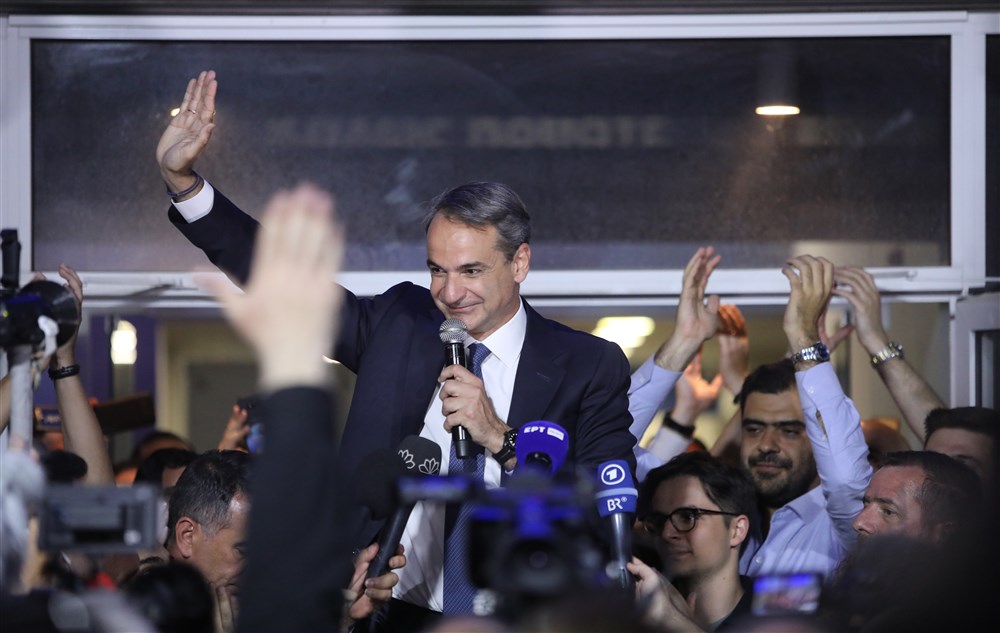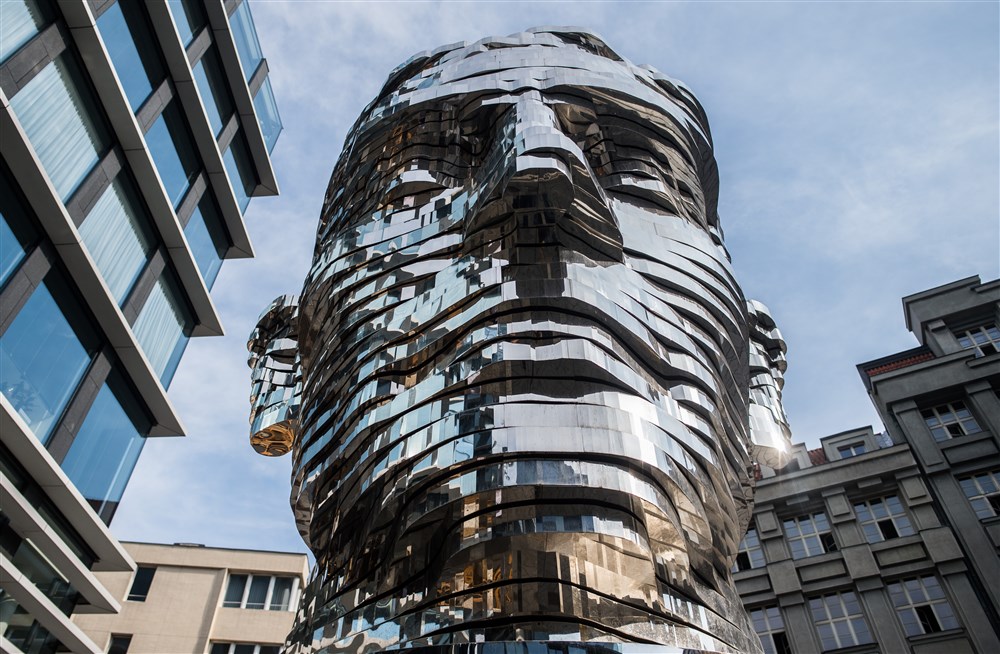Greece’s government has survived a no confidence motion over the country’s worst train disaster, which claimed 57 lives.
The vote, 159 votes to 141, follows claims from both the Left and the Right that the government engaged in a cover-up in order to protect certain politicians.
It took place amid a turbulent parliament session and increased pressure on the ruling New Democracy (ND) party, which is losing public support. Polls suggest that its approval rates have dropped from 41 per cent last summer, to around 31 now.
There is talk among the Prime Minister’s entourage about early parliamentary elections, to be held together with the European Elections in June, reported KONTRA newspaper and Talk Radio 98.9. There are also suggestions that a cabinet reshuffle is imminent.
The accident – or “crime”, as the opposition calls it – at Tempi, northern Greece, took place in February last year, and had no impact on ND in general elections. But rumours of a coverup by the authorities, allegedly involving illegal activities have since circulated.
The accident scene was reportedly bulldozed flat before a thorough investigation could be carried out. Three train carriages have disappeared from the wreckage accessible to investigators. All videos of the freight train involved have been deleted.
Hellenic Solution president Kyriakos Velopoulos brought to parliament what he said was proof that the State General Laboratory found xylene, toluene, benzene, propane and butane traces in the wreckage.
According to official reports, such cargo was not carried by the freight train that crashed into the passenger train. However, according to Velopoulos, those substances explain the huge explosion which followed the crash and killed dozens passengers, suggesting a possible link to smuggling.
Last Sunday To Vima, one of Greece’s oldest newspapers, reported that audio files of the railroad communications were also edited before being handed to the police. To Vima belongs to shipping and media magnate and Olympiacos FC owner, Vangelis Marinakis. He used to staunchly support the Mitsotakis government though has since changed his position.
As a result of the To Vima frontpage story, Socialist PASOK leader Nikos Androulakis brought forward the no-confidence vote.
“They do not care about the victims’ relatives suffering,” ND spokesman Nikos Romanos said. “Opposition parties only want to bring down the government and are plotting to do so,” he said.
Mitsotakis bashed Marinakis in parliament and sacked two ministers who recently visited the shipping magnate.
Having collected 1.3 million signatures in Greece, the families of the victims have meanwhile brought the matter to Brussels. Association of Relatives of the Victims of Tempi spokesperson, Maria Karystianou, who lost her daughter in the crash, has already addressed the European Parliament twice.
According to Renew Europe and S&D, the Tempi train crash contributed to their vote for a European Parliament resolution adopted last month “sounding the alarm on the steep decline of the rule of law in Greece”.
In September 2023, the European Union Agency for Railways (ERA) issued a report on the fatal accident at Tempi. The report “finds the roles and responsibilities of the main operational players managing safety to be unclear”.
In March 2023, the European Public Prosecutor’s Office (EPPO) published an investigation into EU co-funded contracts regarding the upgrade of the signalling and remote control systems of Greek railroads.
In February 2024, the EPPO brought charges against 23 suspects – including 18 public officials – for crimes relating to the execution of those contracts. EPPO prosecutor Popi Papandreou called on Greek authorities to charge two former ministers with “breach of duty and misappropriation”.
According to Greek law, ministers can only be brought to Justice if the parliament decides so. A preliminary committee was set up in November rejected all accusations and archived the case.
The Transport Minister at the time of the crash was Kostas Karamanlis – nephew of the former Prime Minister of the same name and descendant of Konstantinos Karamanlis, the historic statesman credited with overseeing Greece’s accession into the EU, which then was the EEC.
Karamanlis resigned in the aftermath of the disaster but did run for parliament a couple of months later, and was re-elected. If Mitsotakis now decides to sacrifice him in order to relieve some of the pressure on his government, he will alienate a whole wing within his party, observers say.
In the midst of the troubles, Mitsotakis is reported to be eying a higher EU office.





